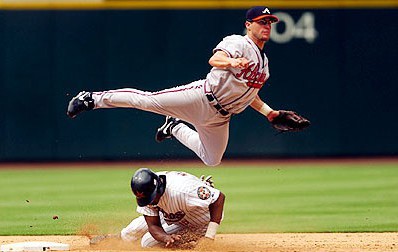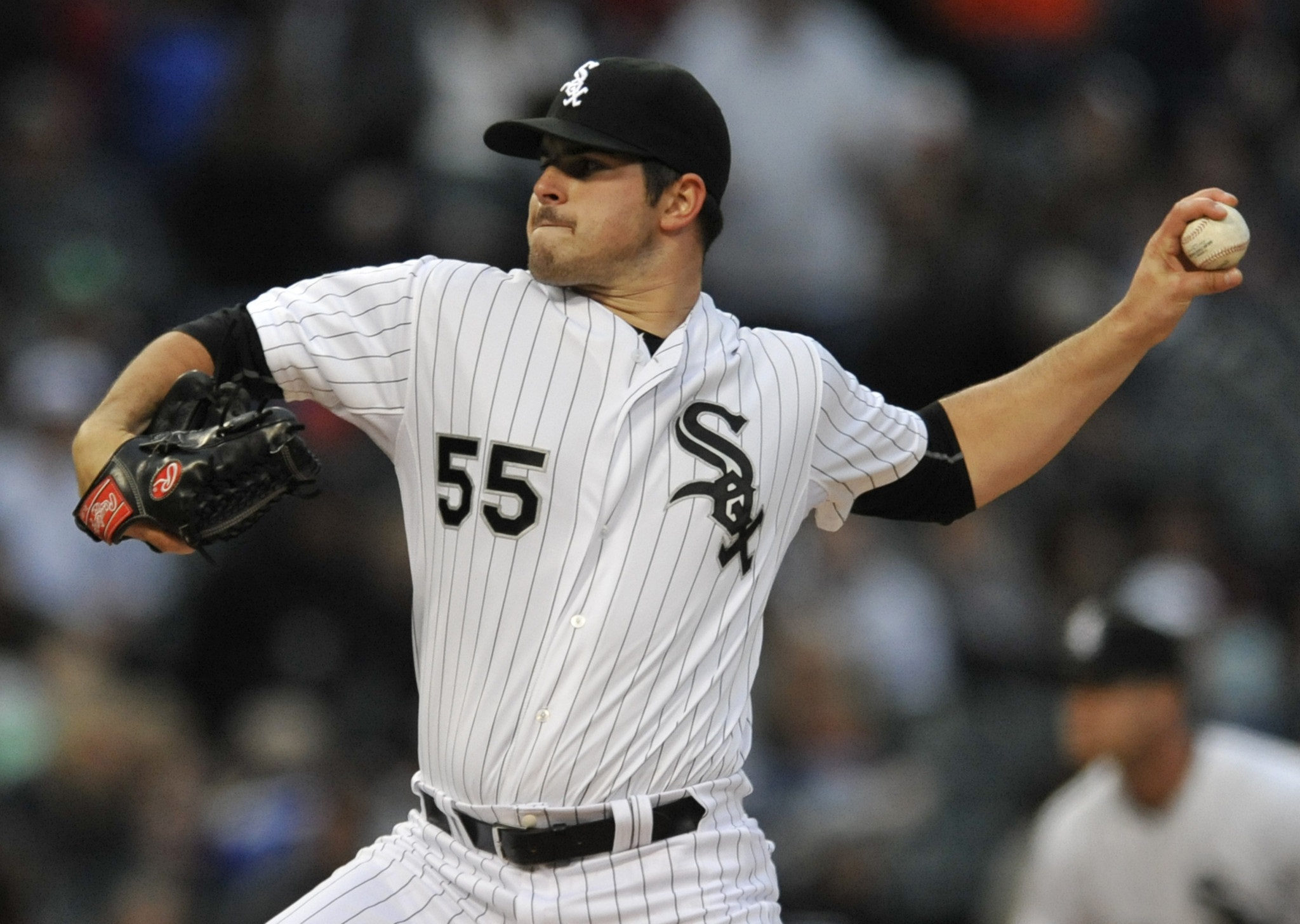My last name is Calle, which means ‘Street’ in Spanish. This is a piece about narrative street. Ergo, ‘Narrative Calle.’ You’re welcome.
Birthdays
Instead of crafting an introduction, I’ll just borrow the following excerpt from Matthew Freedman’s article on birthdays:
I don’t really care all that much about my birthday.
Ditto.
Laying the Bricks that Form the Yellow-Bricked Narrative Road
Far too often, we assume that a player’s performance is affected by perceived intrinsic motivations or external factors — such as a birthday. Undoubtedly, a birthday is a significant milestone. (It means that death is one year inevitably closer.)
In 14 chances, Frank Thomas amassed a .468 batting average on his birthday and failed to deliver a hit just once. Derrek Lee homered on his birthday in four consecutive seasons in the early 2000s. Todd Helton, Alex Rodriguez, and Lee each homered on their birthday on five separate occasions. Chipper Jones accrued five homers and a .429 average on his birthday.
Are these batters outliers? Or do professional athletes tend to perform better on their birthdays?
Calle vs. Peterson
According to a 2009 article by Christopher Peterson, birthdays matter:
Players hit better on their birthdays than on other days during the season, and better on their birthdays than did other players during the season.
The research sample consisted of 69 batters from the 2008 season.
Here’s the thing: Since 2012, hitters playing on their birthdays have produced a .250 batting average. All other batters (pitchers in National League parks included) have a .253 batting average.
I know that batting average doesn’t perfectly represent a player’s performance, but it’s sufficient enough for our purposes. Clearly, Peterson’s 2009 claim can be disputed.
At FantasyLabs, we possess the data necessary to backtest the birthday narrative. It’s not easy as selecting a Narrative filter in the Trends tool, but we can do it.
Research
Courtesy of Sean Lahman, I downloaded a spreadsheet containing pedigree information of 18,846 players dating back to 1870. It wasn’t until well after I narrowed the list to 453 batters and 59 pitchers that I realized that Baseball-Reference.com allows you to sort players by games played on their birthday. That was a humbling moment.
[Editor’s Note: I literally had to take a 20-minute break after reading that paragraph. As far as wasting time goes, that break was pretty productive.]

Anyway . . .
In my study I made anyone born before March 31st or after October 4th ineligible. I wanted all players to have the opportunity to play on their birthdays. Also, I excluded all players who didn’t actually start games on their birthdays.
FanDuel data traces back to 2012, and DraftKings records data back to 2014. April 30, 2016, marks the end of the data collection timeline. There were a few instances in which someone played on his birthday and neither fantasy site captured the game due to extenuating circumstances.
There are some notable hitters who were excluded from the sample because of the previously mentioned birthday criteria: A.J. Pollock, Mookie Betts, David Ortiz, Giancarlo Stanton, Starling Marte, Edwin Encarnacion, Yoenis Cespedes, Andrew McCutchen, Dexter Fowler, Matt Carpenter, Chris Davis, Chris Carter, and many others. All of the aforementioned batters have averaged a Plus/Minus value of at least +1.0 since 2012.
Also, some great pitchers such as Clayton Kershaw, Chris Sale, Jake Arrieta, and Matt Harvey were exempt. The aforementioned pitchers all sport a Plus/Minus of at least +5.0 on FD in no fewer than 70 starts.
Results: Red Rum
The images below were manipulated to parallel the collected data. The names have been changed to protect the innocent. You’ll notice a lot of red.

The average DK hitter expected to produce 6.9 points costs $3,500, provides a -0.20 Plus/Minus, and has 40.4 percent Consistency. Non-birthday hitters provide slightly more value when compared to birthday hitters and meet value at a significantly higher rate.

The average FD hitter expected to reach 9.21 points costs $3,000, suffers a -0.14 Plus/Minus, and exhibits 40.7 percent Consistency. That accounts for a difference of +0.48 Plus/Minus when compared to an FD birthday hitter. Again, the difference in Consistency is substantial.

The average DK pitcher expected to generate 14.38 points costs $7,800, adds a +0.56 Plus/Minus, and hits value 53.3 percent of the time. Comparatively, a DK birthday pitcher provides significantly less value than the average $7,800 starter.

The average FD pitcher expected to score 27.93 points costs $7,500, incurs a -2.10 Plus/Minus, and meets value 44.3 percent of the time. Compared to a birthday starter, the average pitcher harboring similar expectations yields less value. Score one for the birthday crowd.
Not Everyone Hates Birthdays
Not every player struggles on his birthday. Ian Desmond, born on September 20th, is the only player to meet expectations all four years on FD with a +3.75 Plus/Minus. Kendry Morales has homered on his birthday three times in his last five opportunities, and he crafted a 6.38 Plus/Minus on June 20th with an average Park Factor of 17.25.
On the opposite end, Adrian Beltre, Hunter Pence, Joe Mauer, Carlos Beltran, Jose Altuve, Adam Jones, and Anthony Rizzo have all failed to meet their expected point total each of their last four birthdays.
Since 2012, Mike Trout and Miguel Cabrera were the only MVPs to play on their birthdays. Trout (+7.18 Plus/Minus) performed exceptionally well, while Cabrera, a two-time MVP over the past four seasons, registered a -4.14 Plus/Minus on April 18th.
Is There Any Hope?
Under what circumstances does a birthday hitter average a non-negative Plus/Minus? After sorting by salary, lineup order, location, park factor, age, month, and year, I realized that few scenarios have historically offered positive value.
The chart below highlights situations in which players have contributed positively on their birthdays (with a minimum of 20 instances):

A lot of this is noise, but some of these filters might mean something . . . something that has absolutely nothing to do with birthdays . . .
Conclusion
The historical data shows that, for whatever reason, hitters and pitchers fail to meet salary-based expectations on their birthdays. Similarly, non-birthday hitters provide slightly better value than birthday batters with the same profile.
Birthday hitters as a cohort have 35 percent Consistency — the equivalent of hitters in the seventh and eighth slots.
Pitchers rarely take the mound on their birthdays, and when they have it has led to a negative Plus/Minus. Nonetheless, birthday pitchers on FanDuel provided more value than non-birthday pitchers, even though both groups offered a Plus/Minus no better than -1.60.
As Bill Monighetti astutely notes, “It’s just a lot more visible when someone does go off on their birthday than when someone goes 1-4.” Take Nomar Garciaparra. On his birthday in 2002, Garciaparra hit three home runs and batted in eight runs when the Red Sox defeated the Devil Rays 22-4 in the first game of a double-header. In the second game, Garciaparra went one for five with a strikeout. His birthday productivity epitomizes Bill’s comment.
Including a player’s birthday into your research doesn’t appear beneficial, unless you do it to fade that demographic — and even then your process might be suspect.
If you know that Mike Trout (8/7), Kendry Morales (6/20), or Ian Desmond (9/20) are celebrating their birthdays, then you may want to invest, given their histories. Otherwise, ignore birthdays in MLB DFS — as you should in all walks of life.





